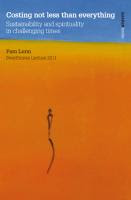To catch you up: On September 30th 2011, the UK Supreme Court in London served as the venue for a mock Ecocide Trial. Simon Hamilton, Chairman of The Hamilton Group, organisers of the event, says:
The trial allowed a forensic examination of the implications of this proposed law to see how it would work in practice. Ecocide should be on the Agenda at the Earth Summit in Rio in June 2012. The mock Trial proved that the crime of Ecocide is valid. The ethical and moral case for the banning of ecocides must now be at the forefront of decision-makers in Government and business throughout the World. There is international interest in the passage of such a law and The Hamilton Group will continue to ensure that the implications are as widely debated and understood as possible.The argument is that the proposed new Law against Ecocide is fundamental in addressing humanitarian and environmental issues on a global scale. Implementation of the Law has the potential to change inter-governmental policy and action on climate change, by providing the necessary legal framework to help stop the over-exploitation of natural resources and to pre-empt the impending energy crunch.
The CEOs who were role-played in the mock trial were found guilty, so the next step is sentencing. At the time, this was adjourned for a Restorative Justice hearing, which will take place at the Institute for Democracy & Conflict Resolution (IDCR) at the University of Essex on the 31st of March.
Both CEOs have agreed to attend, which will bring them face to face with individuals who speak on behalf of the inhabitants of the territory they have been convicted of extensively damaging. The Hearing will take place after representations by Prosecuting Barrister Michael Mansfield QC and Defence Barrister QC counsel to the Judge (TBC). The parties then have the option to adjourn to a room for a Restorative Justice mediation, which will be filmed and screened live as they wrestle with the issues that arise.
The event is open to the public and interested organisations; there will be breakout sessions, debates and speakers during the day to discuss the issues that arise during the Restorative Justice process. Lawrence Kershen QC, Chair of the Restorative Justice Council will facilitate. You can register (it's free) to attend the event or you can link to a live stream on the day. And you can check out the FAQs page.
A key person in both the trial and the sentencing is Polly Higgins, a barrister and international environmental lawyer who has proposed Ecocide, as the law to protect the Earth's Right to Life, to the United Nations. Her book, Eradicating Ecocide, Laws and Governance to Prevent the Destruction of our Planet, sets out the law of Ecocide and she is campaigning for Ecocide to be made the 5th Crime Against Peace (alongside the existing international crimes of genocide, ethnic cleansing, wars of aggression and crimes against humanity).
The definition of Ecocide submitted by Polly Higgins to the United Nations is:
the extensive damage, destruction to or loss of ecosystems of a given territory, whether by human agency or by other causes, to such an extent that peaceful enjoyment by the inhabitants of that territory has been severely diminished.You can see The Ecocide Trial on YouTube in the normal short sections: start here with Part 1.
There will be a post here later, after the sentencing, to report on what happened. But meanwhile here's a trailer: below are links to YouTube clips showing some of the actors who took part n the mock trial ad-libbing in their trial roles. They're very good, very realistic!
http://youtu.be/kb_ArPEz9w4
http://youtu.be/FHw49BeZ_RY
http://youtu.be/MSsKRMUrwzU
http://youtu.be/RJnL_y-cLPI


